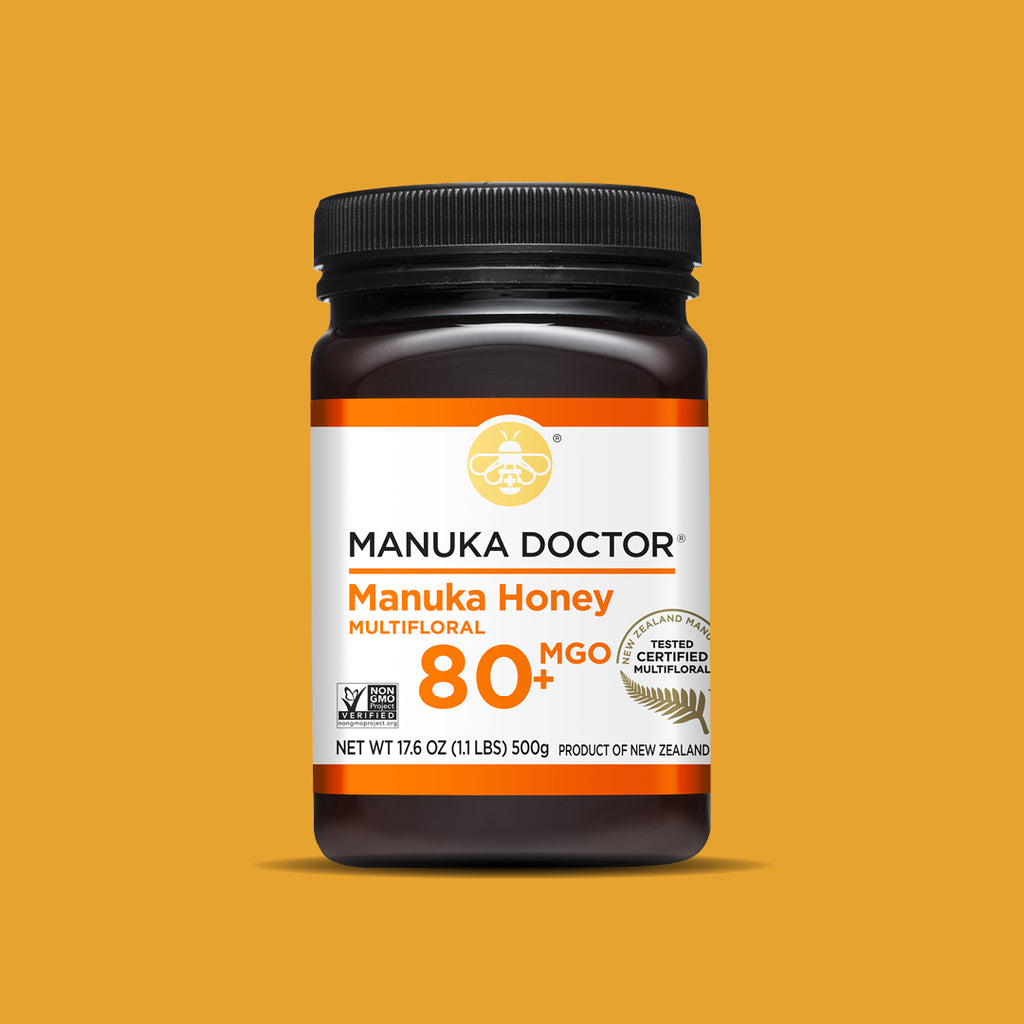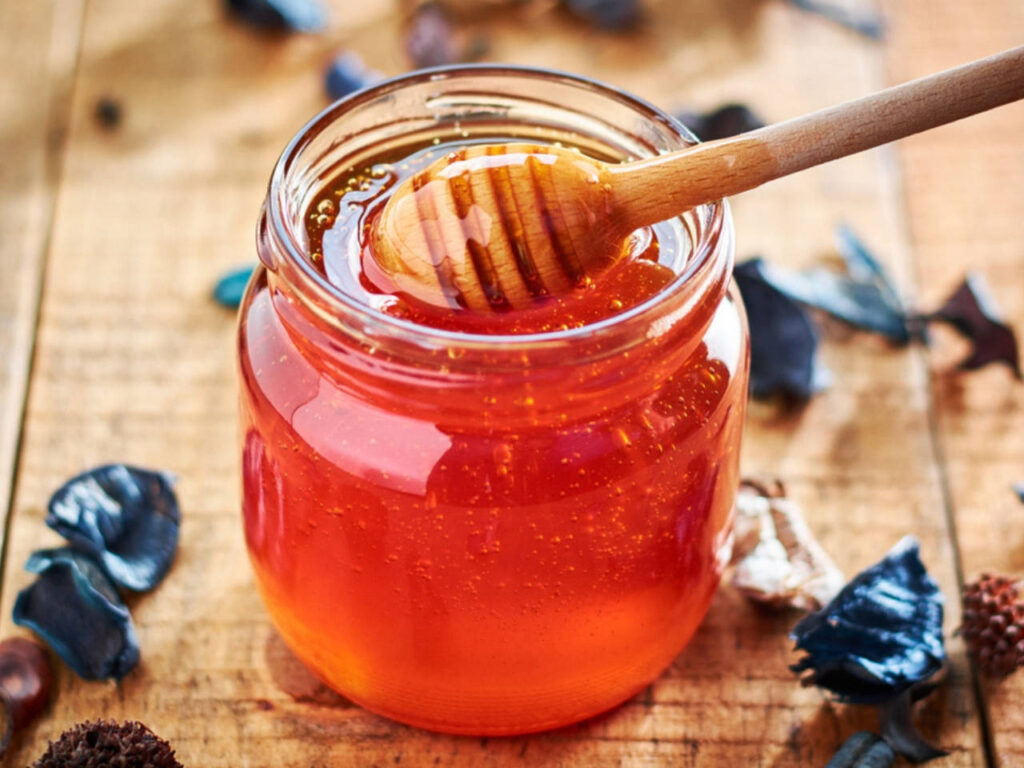
Imagine finding a natural remedy that not only satisfies your sweet tooth but also helps relieve the symptoms of asthma. Well, look no further because manuka honey might just be the answer you’ve been searching for. In this article, we explore the potential benefits of manuka honey for asthma sufferers and how this golden elixir could provide much-needed relief for those struggling with respiratory issues. So, grab a cup of tea, sit back, and discover the intriguing link between manuka honey and asthma.
What is Manuka Honey?
Manuka honey is a unique and highly regarded type of honey that is known for its exceptional healing and medicinal properties. It is derived from the nectar of the Manuka tree (Leptospermum scoparium), which is native to New Zealand. This tree is also commonly referred to as the tea tree, and its flowers produce a rich and potent nectar that bees collect, transform, and create into Manuka honey.
Understanding Asthma
Asthma is a chronic respiratory condition that affects millions of people worldwide. It is characterized by inflammation and narrowing of the airways, leading to symptoms such as wheezing, coughing, chest tightness, and shortness of breath. The exact cause of asthma is still not fully understood, but it is believed to be a combination of genetic and environmental factors.

The Link Between Manuka Honey and Asthma
Research has shown that Manuka honey may have potential benefits for asthma patients. Several studies have explored the effects of Manuka honey on asthma symptoms and have indicated promising results. It is believed that the unique properties of Manuka honey, including its antibacterial, anti-inflammatory, and immune-boosting properties, contribute to its potential efficacy in managing asthma.
Antibacterial Properties of Manuka Honey
One of the key reasons why Manuka honey stands out among other types of honey is its powerful antibacterial properties. This is due to the presence of a compound called methylglyoxal (MGO), which is naturally occurring in Manuka honey. MGO is responsible for the honey’s strong antibacterial effects, making it effective against a wide range of bacteria, including those that can cause respiratory infections.
For asthma patients, this antibacterial property of Manuka honey can be especially beneficial. Respiratory infections can trigger asthma symptoms and exacerbate the condition. By incorporating Manuka honey into their routine, asthma sufferers may help reduce the risk of respiratory infections and subsequently alleviate asthma symptoms.

Anti-inflammatory Effects of Manuka Honey
Inflammation plays a significant role in the development and progression of asthma. When the airways become inflamed, they become more sensitive, leading to the characteristic symptoms experienced by asthma patients. Manuka honey has been found to possess anti-inflammatory properties, which can help reduce airway inflammation and alleviate asthma symptoms.
Research has shown that Manuka honey can inhibit the release of inflammatory mediators in the body, thereby reducing the severity of inflammation. This anti-inflammatory effect may contribute to the overall improvement of asthma symptoms and the management of the condition.
Immune System Support
The immune system plays a crucial role in defending the body against infections and diseases. For asthma patients, maintaining a robust immune system is vital in minimizing the risk of respiratory infections and managing asthma symptoms. Manuka honey has been found to support the immune system due to its antimicrobial and antioxidant properties.
The antimicrobial properties of Manuka honey can help eliminate harmful bacteria and pathogens that can weaken the immune system and trigger asthma attacks. Additionally, the antioxidant compounds present in Manuka honey can neutralize free radicals in the body and reduce oxidative stress, which can compromise the immune system. By incorporating Manuka honey into their diet, asthma patients can potentially provide their immune system with the support it needs to function optimally.

Potential Anti-Allergic Properties
Allergies are often linked to the development and exacerbation of asthma symptoms. Many asthma patients have underlying allergies that can trigger asthma attacks. Manuka honey has been studied for its potential anti-allergic properties, which may help alleviate allergy symptoms and reduce the frequency of asthma attacks triggered by allergies.
Research suggests that Manuka honey can inhibit the release of histamine, a compound involved in allergic reactions. By reducing histamine release, Manuka honey may help reduce the severity of allergy symptoms and provide relief to asthma sufferers. However, further research is needed to fully understand the extent of Manuka honey’s anti-allergic properties and its specific effects on asthma.
Managing Respiratory Infections
Respiratory infections, such as the common cold or flu, can have a significant impact on asthma patients. These infections can exacerbate asthma symptoms and lead to more frequent and severe asthma attacks. Manuka honey has long been used as a natural remedy for respiratory infections due to its antimicrobial properties.
The antibacterial effects of Manuka honey can help combat the pathogens responsible for respiratory infections and reduce their impact on asthma symptoms. Consuming Manuka honey during respiratory infections may not only help alleviate cold or flu symptoms but also support the management of asthma symptoms by preventing further exacerbations.

Dose and Frequency
When incorporating Manuka honey into an asthma management regimen, it is important to determine the ideal dosage and frequency of consumption. While there is no standardized recommendation for Manuka honey dosage specifically for asthma management, it is generally recommended to start with a low dose and gradually increase if needed.
A suggested starting point is one to two teaspoons per day, either consumed directly from a spoon or added to warm beverages. It is important to note that Manuka honey can have a strong flavor, so it may take some time to adjust to its taste. Consulting with a healthcare professional or a registered dietitian can provide personalized guidance on the ideal dosage and frequency for each individual.
Potential Risks and Precautions
While Manuka honey is generally considered safe for consumption, there are a few potential risks and precautions to be aware of, particularly for individuals with specific medical conditions or taking certain medications.
Some individuals may be allergic to honey or bee products, and in rare cases, an allergic reaction to Manuka honey can occur. It is important to be cautious when trying Manuka honey for the first time and to discontinue use if any signs of an allergic reaction, such as hives, swelling, or difficulty breathing, occur.
Additionally, Manuka honey may interact with certain medications, such as blood thinners or antibiotics. It is advisable to consult with a healthcare professional before incorporating Manuka honey into the asthma management routine if any medications are being taken.
Overall, while Manuka honey shows promising potential in managing asthma symptoms, it is important to approach it as a complementary therapy and not a substitute for prescribed medications and treatments. Consulting with a healthcare professional is essential to ensure safe and effective integration of Manuka honey into an individual’s asthma management plan.
